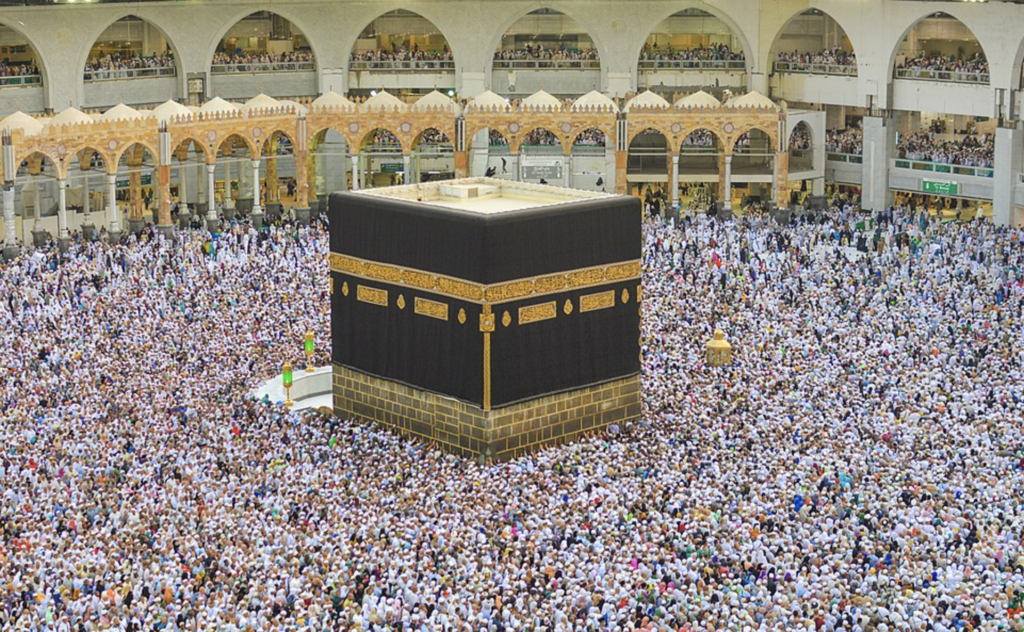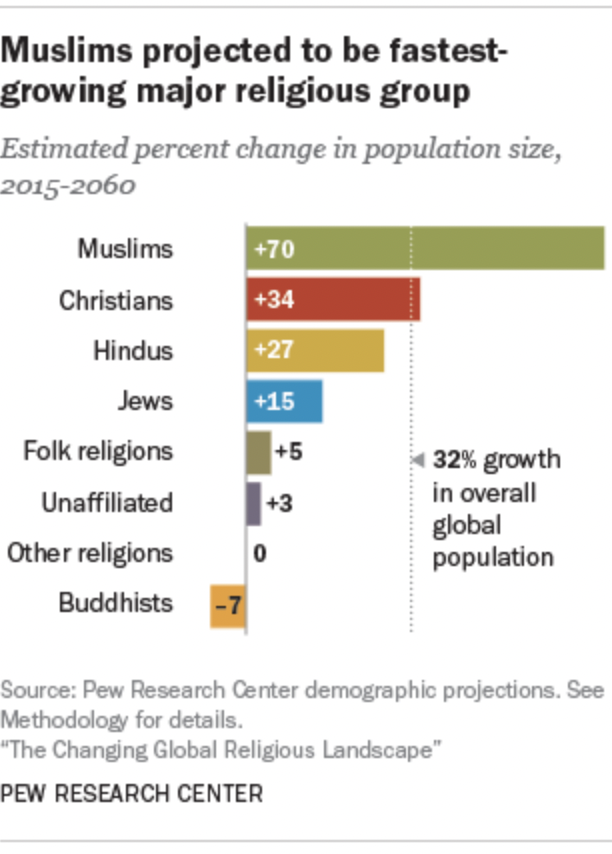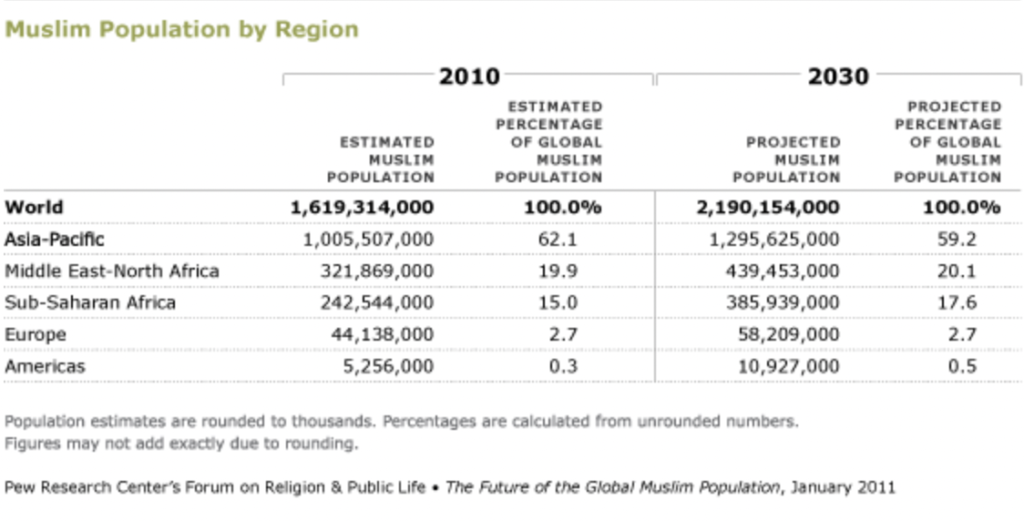Fastest Growing Religion, Global Muslim Population Surpassed 2 Billion

By: Adam Abdel-Qader / Arab America Contributing Writer
As of last month, the global Muslim population achieved a remarkable milestone with over 2 billion adherents. This achievement bears great significance for both Arabs and Arab Americans. By exemplifying the expansion and impact of Islam and its cultural significance on a global scale.
Approximately one-fourth of the world’s population consists of Muslims. As their numbers continue to rise, there is a greater acknowledgment and acceptance of Islam and its followers. This potentially fosters understanding and collaboration among diverse religious groups and ethnically diverse demographics.

Unprecedented Growth:
The Muslim population is rapidly growing due to Islam’s status as the world’s fastest-growing religion. According to a study by the Pew Research Center, Muslims are expected to constitute roughly 31 percent of the earth’s inhabitants by 2060.
Researchers attribute this surge in numbers primarily to Muslim communities’ high fertility rates and relatively young demographics compared to other religions globally. As well as an ongoing trend for religious conversions around the world. While some regions have seen a decline in religiosity the influence of Islam continues to reach new heights at unprecedented rates!
Muslim and Arab Culture:
The growing number of Muslims worldwide has significant ramifications for both Arabs and Arab Americans. As their cultural identity is deeply connected to their Islamic beliefs. This influx of individuals embracing Islam offers an opportunity for broader recognition and admiration of Arab culture. Beyond the usual media-derived stereotypes. Moreover, through exposure to genuine manifestations of Islamic traditions and convictions detrimental misconceptions and Islamophobia surrounding Islam can be better dealt with and countered efficiently.
Moreover, this change in demographics may carry significant implications for politics at a local and global scale. As the Muslim population continues to increase, it becomes imperative for governments to consider their constituents’ necessities. This can be done by devising policies concerning education, healthcare facilities, social welfare schemes as well as religious accommodations. Furthermore, nations with dense or growing Muslim communities could be more influential in determining foreign policy decisions. Due to their formidable size and collective sway.

Muslim and Arab American Relevance:
With the rise of Islam’s acceptance and people moving from Muslim-majority countries, Arab Americans can now actively engage in their communities across America. Mosques and Islamic centers are not just religious buildings but also organizers for social events, educational programs, and welfare initiatives. As representatives who welcome newcomers embracing American society through conversion or migration. Arab Americans can promote integration while expanding interethnic understanding via religion throughout the country.
Recognizing both progress and obstacles is vital. The increase in discriminatory acts targeting people perceived to be Muslim reveals intolerance and hostility toward the faith. Thus creating impediments that require direct intervention. It is crucial for Muslim Arab Americans to persistently advocate for their rights while actively dispelling cultural and belief-based misconceptions through enhanced communication with all communities to address these challenges effectively.
The growth of the Muslim population worldwide brings about opportunities and challenges for Arab and Arab American individuals. On the one hand, it signifies a surge in Islamic principles affecting cultural practices; on the other, this emphasizes how crucial continuous discussion and collaboration are among varied communities. By actively engaging with their respective societies to promote intercultural solidarity, both groups can constructively create an ever-transforming global sphere that adapts to these demographic changes.
Conclusion:
In conclusion, the recent achievement of over two billion Muslims worldwide is a crucial moment for both Arabs and Arab Americans. As Islam maintains its position as the world’s fastest-growing religion, this demographic shift emphasizes the necessity for ongoing advocacy, comprehension, and collaboration between various communities. By initiating discussions and encouraging cultural exchange activities to take place actively, Arabs, alongside their American counterparts, can contribute significantly towards fostering an all-inclusive global society that thrives on peaceable coexistence.
To learn more, visit the Pew Research Center’s “The Changing Global Religious Landscape” analysis. This research is a crucial reference point for understanding these trends’ dynamics regarding their potential effect on globalization and the interlinking of our planet.
Check out Arab America’s blog here!








